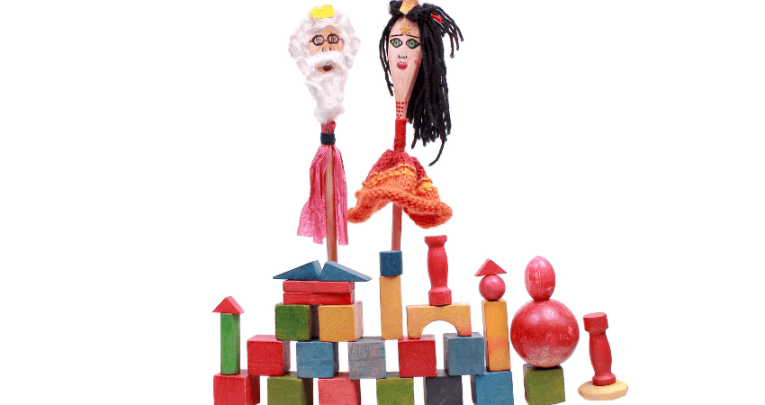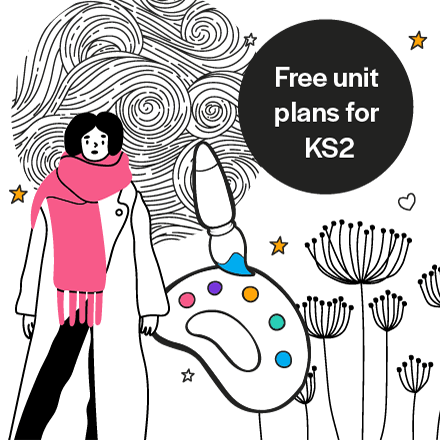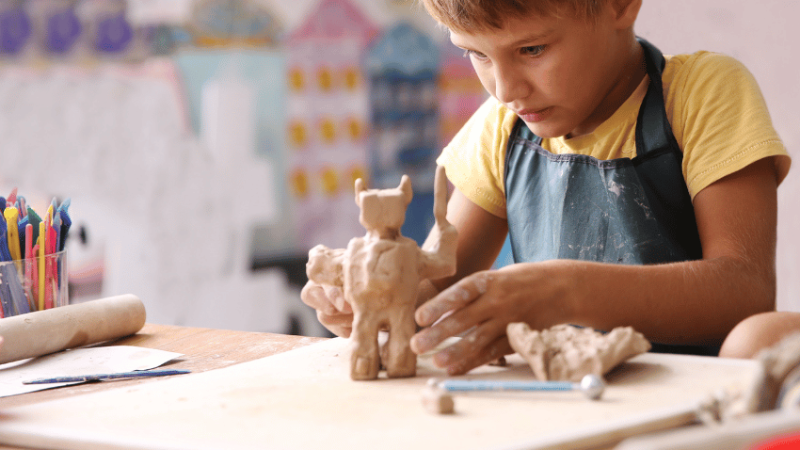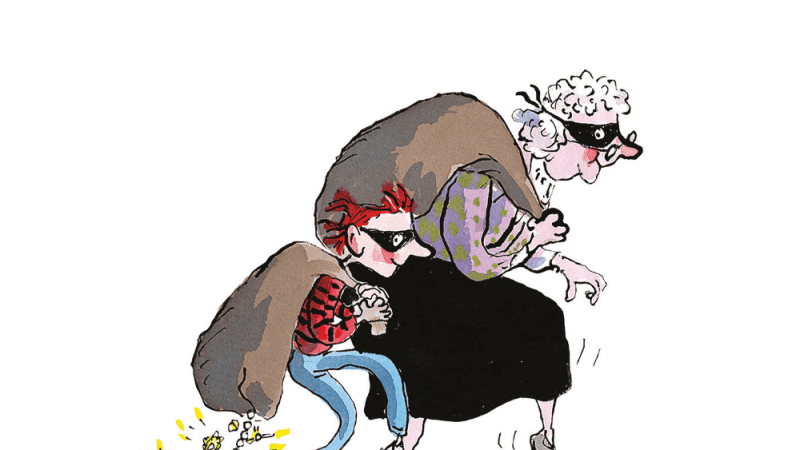Learning through play – KS1 activity ideas

Stick puppets and superheroes – develop little ones’ communication skills and empathy through role-play, says Maryanne Martin…

The fight is starting to tire you out, but your superpowers are finally beginning to kick in. You’re able to single-handedly defeat the three bad guys and carry the little children to safety.
Are you wondering what your superpower is? Or how you managed to defeat the bad guys? Well, your power is whatever you want it to be, and you could beat 10 bad guys if you wanted!
It’s all in the spirit of a great role-play activity.
Over the years, I have found role-play extremely captivating. It provides the participants – both young and old – an opportunity to transport themselves into an alternate reality, which in turn creates a safe space to express themselves and their dreams, fears, wishes and hopes without feeling scrutinised and judged.
This makes role-play a great activity to help your KS1 pupils learn how to communicate.
However, throwing your little ones into a role-play activity and hoping they learn how to engage is not the way to do it.
It is important that the children feel comfortable in expressing themselves before they engage in a structured role-playing environment.
The easiest way to do this is to encourage them to take part in play where they pretend to be different characters that are interesting to them.
Puppets KS1
One fun activity to help your KS1 pupils get started with pretend play is to encourage them to create stick puppets of their favourite characters from books or even films.
Decorate sticks from the playground or wooden spoons with felt-tip faces, paper or felt stick-on clothes, and wool or string for hair.
Once everybody has a stick puppet, you can divide your class into groups and encourage them to pretend to be their characters.
While children engage in this sort of pretend play, you will see them expanding their creative horizons and learning how to communicate and socialise with their peers.
An activity of this sort will help your pupils build their social competence, and help them improve their ability to self-regulate and cope emotionally, too.
Additionally, this sort of open-ended play will provide children with an opportunity to get creative and make their own storylines.
Putting your little ones in this position will teach them how to be considerate and think from different points of view, developing their empathy skills.
Character development
Once your pupils are able to relax and enjoy engaging in pretending, it is time for you to make the activity a little more structured (but still fun!).
You could introduce some rules to the scenarios the children are making up. For example, allow them to use the same characters, but encourage them to follow a rough framework by adding a new character with an ending to their story.
This will encourage the children to work towards a specific storyline based on the ending that you’ve specified. This addition to your activity will help pupils think about their characters and storyline.
As the class gradually finds themselves getting used to the rules, you can try your hands at a fully structured role-play activity.
Start by clearly defining the location and situation, and tell your students what the aim of their activity is going to be.
For example, for a shop scenario, you could allocate different roles to each child, including shopkeeper, security personnel, and customer.
Each of the characters will have their own aims and objectives; the shopkeeper’s job is to check out the items, collect money, provide change, and be polite.
The security guard is in charge of ensuring nobody is shoplifting. And the customer is here to buy ingredients to bake a birthday cake.
Be sure to make props to make the scenario more fun and believable for your pupils, such as a shopping list, a bill template, some money and change, a walkie-talkie for the security guard, food item cards, and whatever else you think might be relevant!
Encourage the children to take turns being different characters, and see how they slowly learn how to communicate and ask for things.
Real-world skills
As well as the social skills little ones will pick up from activities like this, they’ll also improve their vocabulary.
Encourage pupils to pause and ask questions about things they don’t understand or words that they don’t know.
You could even ask them to write down word lists when they come across those that are unfamiliar, to help them learn something new.
As the children get more confident in this structured role-playing activity, you can mix things up a bit and add more elements of chaos.
In the shop scenario for instance, you could add a thief that tries to steal things, a policeman who comes to the scene when the security guard catches the thief red-handed, a crying baby and stressed mother, and whatever else you and your students might fancy!
You can also use role-play to address bigger issues with your students. For example, you could showcase to your class how someone might feel if they were being bullied or treated unfairly.
Children can hurt each other’s feelings unknowingly, and activities like this will help them become more conscious about their actions and how it affects the people around them.
You can even use role-play as a form of therapy to help your students talk about things that might be troubling them in school or at home.
Little ones can sometimes find it hard to express things that might have gone badly, or things that might be upsetting them.
However, creating a safe space for a one-to-one role-play session will help children tell you about what is going on in their lives and in their minds through the characters they feel safe and comfortable around.
The most important part about having a successful and fun role-playing activity is to just go with the flow.
Encourage the class to get involved in planning the activity, too; maybe your pupils are more interested in fire engines and saving the day than in boring old supermarkets!
No matter the situation, there will be lots of opportunity to develop skills.
And most importantly, children will learn how to be spontaneous and have fun (and so will you!).
Learning through play activities
Post office
Characters: the sender of the letter, post office clerk, postman, the receiver of the letter
Props: envelopes, stamps, postman bag, doorbell
Coffee shop
Characters: a group of friends, waiter, manager, chef
Props: menu, bill, food cards, money, order pad
Superheroes
Characters: a group of superheroes, a few bad guys, civilians and children, the Queen of England
Props: capes, masks, toys, a crown
Seaside
Characters: children, friends, mummy, daddy, granny, grandpa, lifeguard, ice-cream seller
Props: bucket and spade, lifeguard cap, ice-cream props, sandpit (if your school has one)
Maryanne Martin is an education writer, and holds an MA in Education from the University of Sheffield.











